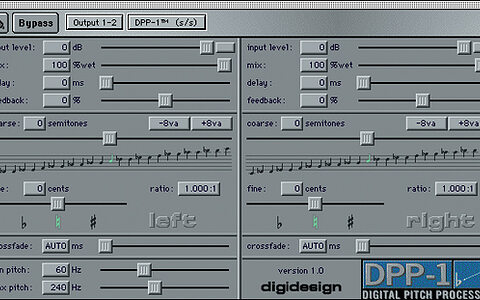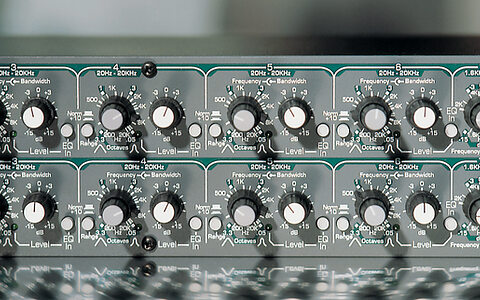
Digitech TSR6
Digitech have trimmed back both price and features for the latest addition to the TSR effects family. But does the newcomer offer enough bang per buck?
To find the exact phrase, put the words in quotes or join them together with a plus sign e.g. live+recording or "live recording".
To find, say, all live recording articles that mention Avid, enter: live+recording +avid - and use sidebar filters to narrow down searches further.

Digitech have trimmed back both price and features for the latest addition to the TSR effects family. But does the newcomer offer enough bang per buck?

Paul White puts Mackie's new 1202 VLZ next to his original 1202 and discovers more changes than you might expect.

Paul White experiences the delights of this all-digital, automated mixing environment where unwieldy cable harnesses and tiered patchbays are the thing of the past.

This time the sun really has got to Julian Colbeck, Keyfax Software supremo and recent emigré to California;...

Capital Mamba make bespoke equipment covers and soft cases, which means that no matter how obscure your keyboard instrument,...

The Song Builder series of MIDI files currently comprises at least seven volumes of patterns, riffs and phrases in...

Users of KAT's drumKAT or trapKAT may be interested to learn that a couple of new accessories are available, the simplest...

Can a low-cost processor really clean up noisy recordings effectively? Paul White finds out.

Have Fostex really stolen Roland's thunder with their digital multitrack? Mystic Paul White thinks Roland might have a trick up their sleeve.

Paul White gets out and about with the Tascam DAP1 and discovers the joys of collecting sounds outside the studio.

The all-digital, computer-based recording studio is no longer a distant future possibility. Thanks to digidesign's TAM buss, many of the processing capabilities of a traditional studio setup are now available as computer software plug-ins. In the first of this two-part feature, Mike Collins takes us through some of the available options.

Behind every musical milestone there's a pioneering engineer. In the first of an occasional series, Richard Buskin looks at classic recordings from a technical angle. This month, former Van Morrison engineer Elliot Scheiner talks about the 1970s sessions which produced the 'Domino' effect...

'I once believed in Jesus, now I can't believe in rock' n' roll." ex-Virgin Prune Gavin Friday may have his cross to bear, but this gadfly of the Irish rock scene isn't one to let the grass grow under his feet...

Having resolved the nebulous role of the record producer in Part 1, this month David Mellor addresses the practical matter of pre-production.

Time was when synths weren't all weedy presets and wheyfaced copies of real instruments. Regular SOS contributor Paul Nagle is living off his memories...

In his time, Ron Berry has been a synth-player and a freelance designer — but it's as an electronics hobbyist that he cut his teeth. Jonathan Miller meets the man who keeps the DIY ethic alive.

When it comes to cabling, it pays to have the right connections. Paul White makes the introductions.

You might think that EQ is simply a tone control, but as Paul White explains, it's really a powerful mind-manipulating tool inextricably linked to the survival of the species!

Most of the time, inspiration doesn't so much strike as go on strike — so what can be done to coax it back to work? Paul White proffers a few suggestions.

Brian Heywood considers what 1996 will bring the PC-based musician, and decides it will be the year of the DAM...